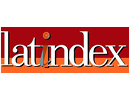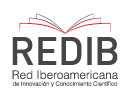Pirates, the rebel generation: Rock music as a space of political dissidence in Nicaragua at the turn of 20th century
DOI:
https://doi.org/10.21142/DES-1501-2023-0005Keywords:
rock, Nicaragua, alternative music, radio, protest musicAbstract
This investigation traces the history of rock music in Nicaragua since the roots, that is 1930’s when the notion of Nicaraguan national culture is built. The role of music in different critical moments of recent Nicaraguan history is explored with respect to the importance of radio in spreading and popularizing determined music genres and political messages. Based on personal interviews and analysis of video-documents we describe the political tendencies within the community around alternative and rock music after the year 1990. The nineties show to be a decade of generational rupture when rock becomes an anti-system movement and a platform of alternative culture and expression of political dissidence, which, at the same time, shows continuity with the political thinking of the previous generation.
Downloads
References
Almanza, R. G. (23 de septiembre de 2010). ¡La Cegua anda suelta! La Prensa. https://www.laprensani.com/2010/09/23/espectaculo/471204-la-cegua-anda-suelta
Barberena, E. (10 de agosto de 2012). El grupo Bwana interpretó música original mezclando rock con ritmos afrocubanos. https://asieselmundo.wordpress.com/2017/08/10/el-grupo-bwana-interpreto-musica-original-mezclando-rock-con-ritmos-afrocubanos/
Barinova, M. (2017). El rock en Nicaragua: un discurso de resistencia contra la neoliberalización o una re-definición de la tradición [Tesis de maestría, University of Nebraska, Lincoln]. https://digitalcommons.unl.edu/cgi/viewcontent.cgi?article=1040&context=modlangdiss
Baxter, K. (1998). Under the volcano: Neoliberalism finds Nicaragua. The Nation, 266(12), 21-24.
Darío, R. (25 de abril de 2009). Piratas. https://poema-s.blogspot.com/2009/04/poema-los-piratas-de-ruben-dario.html
García Canclini, N. (2014). Imagined Globalizatiog. Duke University Press Books.
Gutiérrez Barreto, F. (4 de enero de 2004). La Tortuga Morada en los sesenta. El Nuevo Diario. http://archivo.elnuevodiario.com.ni/variedades/139417-tortuga-morada-sesenta/
Lado oscuro. [Lado oscuro. TN8. Nicaragua]. (25 de febrero de 2016). #40 Bibliografías del rock nacional. Alejandro Mejía (1). [Video]. https://www.youtube.com/watch?v=mLbHzPVHjKY&t=19s
Lado oscuro. [Lado Oscuro. TN8. Nicaragua]. (27 de mayo de 2013). Especial 18 años (1). [Video]. https://www.youtube.com/watch?v=vJ0SubUct2s&t=728s
Lado oscuro Nicaragua. (S. f.). About. Facebook. https://www.facebook.com/LadoOscuroNicaragua
Martínez Guerrero, R. A. (2020). Bwana. Intérpretes del ritmo prohibido. La época dorada de la música nicaragüense. Manuscrito inédito.
Mejía Godoy, L. E. (2002). Relincho en la sangre, relatos de un trovador errante. Anamá Ediciones.
Muñoz, S. G. (2012). Cuentos y leyendas nicaragüenses. https://leyendas-nicaraguenses.blogspot.com/2012/03/la-gigantona.html#:~:text=El%20indio%20esculpi%C3%B3%20la%20gigantona,detienen%20cuando%20el%20coplero%20declama
Nemipipali. (2017). Bio. Nemi Pipali. http://www.nemipipali.com/?fbclid=IwAR2aroJnIWaN-tbGKHLOk5BrvJIjZbdceSPPXVrgqoyu3Wk0_Wq0ve3NAFA
Nica. (18 de julio de 2008). Polidecto Correa, pionero del rock criollo en los años 60. Artistas y grupos nicaragüenses en los 60’s y 70’s. http://conjuntosnicas.blogspot.com/2008/07/polidecto-correa-pionero-del-rock.html
Pérez Orozco, A. (2014). Subversión feminista de la economía: aportes para un debate sobre el conflicto capital-vida. Traficantes de sueños.
Ramírez Paredes, J. R. (2006). Música y sociedad: la preferencia musical como base de la identidad social. Sociológica, 21(60), 243-270.
Rodgers, D. (2004). Disembedding the city: Crime, insecurity, and spatial organization in Managua, Nicaragua. Environment and Urbanization, 16(2), 113-124.
Rodgers, D. (2012). An illness called Managua: Extraordinary urbanization and ‘mal-development’ in Nicaragua. En T. Edensor y M. Jayne (eds.), Urban theory beyond the West. A world of cities. Routledge.
Scruggs, T. M. (1999). «Let’s enjoy as Nicaraguans»: The use of music in the construction of a Nicaraguan national consciousness. Ethnomusicology, 43(2), 297-321.
Scruggs, T. M. (1998). Nicaraguan state cultural initiative and «the unseen made manifest». Yearbook for Traditional Music, 30, 53-73. https://doi.org/10.2307/768553
Ureña, J. C. (2013). The mocking bird still calls for Arlen: Central American songs of rebellion, 1970-2010. En L. Shaw (ed.), Song and social change in Latin America (pp. 49-76). Lexington Books.
Additional Files
Published
Issue
Section
License

Esta obra está bajo una licencia http://creativecommons.org/licenses/by-nc-sa/4.0/



















